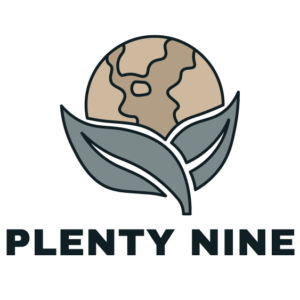Top 10 Essential Browser Extensions for Productivity: Boost Your Efficiency Today
In today’s digital world, staying productive can be a challenge. The right tools can make a significant difference in how efficiently tasks are completed. This blog post will explore the top 10 essential browser extensions that boost productivity, helping users accomplish more with less effort.
From managing tasks and organizing bookmarks to enhancing focus and improving time management, these extensions provide valuable features that streamline online work. They can simplify processes that often slow down productivity.
By integrating these tools into daily routines, individuals can maximize their efficiency and make the most of their time online. Whether working on assignments, browsing for information, or managing personal projects, the right extensions can enhance any workflow.
The Role of Browser Extensions in Enhancing Productivity
Browser extensions can significantly impact how users manage their time and tasks while online. These tools offer a variety of functions that can streamline workflows, reduce distractions, and help maintain focus.
Understanding Browser Extensions
Browser extensions are small software programs that add features to web browsers. They can help users customize their browsing experience. Extensions come in many forms, from ad blockers to task managers.
Some popular productivity extensions include:
- Todoist: A task manager that helps organize daily tasks.
- Grammarly: A writing assistant that checks grammar and style.
- StayFocusd: Limits time on distracting websites.
These tools enhance functionality without overwhelming users. By integrating specific tasks directly into the browsing experience, extensions can save time and improve efficiency.
Extensions Vs. Native Browser Features
Many web browsers come with built-in features designed to enhance productivity, such as bookmarks and tab management. While these features are helpful, they may not meet every user’s needs.
Extensions often provide more specialized tools. For example, a built-in note-taking feature may be basic. In contrast, an extension like Evernote allows for advanced organization, tagging, and syncing across devices.
Using extensions can complement native features. Users can maximize their efficiency by choosing the right combination. This allows for a tailored browsing experience that directly aligns with individual productivity goals.
Criteria for Evaluating Productivity Extensions
When choosing browser extensions for productivity, it is essential to consider specific criteria. These factors ensure that the extensions enhance workflow without causing unnecessary issues or distractions.
Performance Impact
Performance impact measures how an extension affects browser speed and resource usage. A good extension should not slow down webpage loading or consume excessive memory.
To evaluate this, users can check:
- Resource Usage: Monitor CPU and memory consumption through the browser’s task manager.
- Page Load Speed: Measure loading times with and without the extension.
- Stability: Ensure the extension does not cause the browser to crash or freeze.
Extensions that run efficiently while providing useful features are ideal.
User Experience and Interface
User experience involves how easy and pleasant an extension is to use. A well-designed interface can make a significant difference in productivity.
Key factors to assess include:
- Ease of Navigation: The extension should have an intuitive layout that users can understand quickly.
- Customization Options: Users appreciate extensions that allow them to tailor features to their needs.
- Compatibility: Ensure that the extension works smoothly with popular browsers and other tools.
A positive user experience enhances productivity and encourages consistent use of the extension.
Data Privacy and Security
Data privacy and security are critical considerations for any browser extension. With many extensions accessing sensitive information, evaluating their data handling practices is vital.
Important points to consider include:
- Permissions Required: Review the permissions an extension requests to identify any potential overreach.
- Data Storage Practices: Confirm whether the extension stores user data and how it is protected.
- Transparency: Look for extensions with clear privacy policies and proven track records.
Extensions that prioritize user privacy build trust and allow users to focus on their work without worry.
Must-Have Extensions for Task Management
Effective task management is crucial for staying organized and productive. The right browser extensions can significantly enhance one’s ability to track tasks and manage projects efficiently. Below are critical tools that support to-do lists and project management.
To-Do List Integrations
To-do list integrations streamline the process of managing daily tasks. Popular extensions include Todoist and Microsoft To Do. These tools allow users to create tasks, set deadlines, and prioritize activities directly from their browser.
- Todoist: Users can manage tasks with labels, filters, and projects. The extension syncs across devices, providing access anytime.
- Microsoft To Do: It integrates seamlessly with other Microsoft apps like Outlook. This is useful for users who rely on emails for task management.
These integrations support notifications and reminders, ensuring tasks are not overlooked.
Project Management Tools
Project management tools enhance collaboration and organization for teams. Extensions like Trello and Asana are essential for managing projects effectively.
- Trello: This visual tool helps users organize tasks through boards, lists, and cards. Team members can comment, attach files, and assign tasks, making it easy to track progress.
- Asana: Asana provides a structured approach to project management with timelines and task assignments. Users can create projects, set deadlines, and communicate directly in the extension.
Both tools improve accountability and ensure everyone stays on the same page without the need for multiple platforms.
Optimizing Web Browsing with Efficiency Tools
Efficiency tools can greatly improve the browsing experience. They help users save time and focus on what matters. Two key categories of these tools are ad blockers and page load accelerators.
Ad Blockers
Ad blockers remove unwanted ads from web pages. This not only speeds up loading times but also reduces distractions. Many browsers have built-in options, but dedicated extensions offer enhanced features.
Some popular ad blockers include:
- uBlock Origin: Lightweight and customizable, it blocks ads without slowing down the browser.
- AdBlock Plus: Known for its user-friendly interface, it allows users to whitelist certain sites.
Using an ad blocker can lead to a cleaner, more streamlined browsing experience. Users report less frustration and improved focus when ads are removed. It is important to choose an ad blocker that suits personal needs and preferences.
Page Load Accelerators
Page load accelerators enhance how fast web pages appear. They often achieve this by optimizing resources and compressing data. These extensions are especially useful for users with slower internet connections.
A few notable page load accelerators are:
- HTTPS Everywhere: This extension forces websites to load in a secure, faster way.
- WebPageTest: While primarily a testing tool, it provides valuable insights to speed up browsing.
Utilizing page load accelerators can cut down waiting times. It enables users to access important content quickly. This is especially beneficial for professionals who value efficiency in their online tasks.
Information Management and Note-Taking
Effective information management and note-taking can greatly enhance productivity. Using the right tools allows individuals to organize their thoughts and access information easily. The following sections explore two essential types of tools: bookmark managers and annotation tools.
Bookmark Managers
Bookmark managers help users organize their favorite websites and resources efficiently. They allow users to save links in an organized manner, making it easier to access relevant content later.
A few popular options include:
- Raindrop.io: Offers tags and collections for easy organization.
- Pocket: Great for saving articles and videos to read later.
- Pinboard: Focuses on simplicity and speed, ideal for minimalists.
With these tools, users can categorize bookmarks by projects or topics. This organization method reduces time spent searching for links and helps maintain focus.
Annotation and Highlighting Tools
Annotation and highlighting tools allow users to mark important information directly on web pages or documents. These tools can be crucial for students and professionals who need to extract key points from articles or research.
Some common tools are:
- Evernote Web Clipper: Enables users to save articles and highlight text directly from their browsers.
- Kami: A versatile PDF and document annotation tool that works in the browser.
Using these applications, individuals can create summaries, add comments, and ensure essential information is easily accessible. This practice not only aids in comprehension but also helps in retaining crucial details for future use.
Enhancing Focus with Distraction Blockers
Distraction blockers are essential tools for anyone looking to boost their productivity. They limit access to distracting websites and offer features that help users maintain focus. Two key aspects of these tools are site blockers and focus mode features, which can significantly improve work habits.
Site Blockers
Site blockers are browser extensions that restrict access to certain websites. Users can customize lists to include social media, news, or other distractions. By preventing access to these sites, individuals can concentrate better on their tasks.
Many site blockers allow users to set specific times for blocking. For instance, one could block Facebook during work hours but allow access in the evenings. This flexibility helps manage online habits without completely eliminating leisure activities.
Popular site blockers include:
- StayFocusd: Limits time on distracting sites.
- Cold Turkey: Allows for tougher restrictions, even blocking entire websites.
- Freedom: Offers a cross-platform solution for those who switch between devices.
Focus Mode Features
Focus mode features enhance productivity by minimizing interruptions. These features are often part of distraction blockers and can help users stay on task.
One common focus mode is “Pomodoro,” which breaks work into intervals followed by short breaks. Users can set timers for focused work sessions and receive notifications when it’s time to take a break. This structured approach can improve concentration and reduce burnout.
Another useful feature is “read-only” mode. In this mode, users can write or work without distractions from the internet. They can access only essential tools or documents, transforming their browser into a focused workspace.
By leveraging these features, individuals can create an environment that fosters productivity and reduces distractions effectively.
Integrating Communication and Collaboration
Effective communication and collaboration are key in today’s work environment. Browser extensions can greatly enhance these aspects by streamlining email management and improving teamwork.
Email Management Extensions
Email management extensions simplify how users handle their inboxes. They provide tools to organize emails, set reminders, and prioritize messages.
- Extensions to Consider:
- Boomerang: Allows users to schedule emails and set follow-up reminders.
- Mailtrack: Provides read receipts to know when emails are opened.
These tools help maintain focus. Employees can reduce distractions by managing emails more effectively. This leads to better time management and less stress.
Team Collaboration Enhancements
Team collaboration extensions offer features that improve group work and communication flow. They integrate with popular platforms, allowing teams to share information seamlessly.
- Key Extensions:
- Slack: Enhances team communication with chat, channels, and file sharing.
- Trello: Helps teams organize tasks and projects visually.
By using these tools, team members can stay connected and updated. Quick access to shared resources fosters a more productive work environment. This ultimately boosts collaboration and improves project outcomes.
Automating Repetitive Tasks
Automating repetitive tasks can greatly enhance productivity. Two effective tools for this purpose are form fillers and password managers, along with custom workflow automations. These tools simplify daily activities, allowing users to focus on more important work.
Form Fillers and Password Managers
Form fillers and password managers streamline the process of entering information online. They save time by automatically filling in web forms with stored data, such as names, addresses, and payment details.
Benefits include:
- Speed: Users can complete forms in seconds.
- Accuracy: Reduces typing errors that can occur when filling out forms manually.
- Security: Password managers securely store and encrypt passwords, making it easier to log into various accounts without memory strain.
Popular options, like LastPass and Dashlane, offer browser extensions that integrate seamlessly into web browsers, providing quick access to saved information.
Custom Workflow Automations
Custom workflow automations help automate more complex tasks that may involve multiple steps. Tools such as Zapier and IFTTT allow users to create rules that link different applications together.
For instance, a user can set up a rule to automatically save email attachments to a cloud storage service.
Key features include:
- Flexibility: Users can design workflows that fit their specific needs.
- Integration: These tools connect with many web applications, allowing data to flow seamlessly between them.
- Time-saving: Reduces the need for repetitive manual actions.
By utilizing workflow automations, users can minimize time spent on mundane tasks and work more efficiently.
Leveraging Custom Search Tools
Custom search tools can enhance productivity by streamlining how one accesses information online. These tools help users find content faster and more efficiently, reducing time spent sifting through unnecessary results.
Search Engine Widgets
Search engine widgets are small tools that users can add to their browsers. These widgets allow users to search specific sites directly without needing to navigate to them first.
Some popular options might include:
- Google Custom Search: This allows users to create tailored search engines that focus on specific topics.
- DuckDuckGo: Offers improved privacy and straightforward search capabilities.
- Ecosia: A search engine that plants trees for every search.
Using these widgets helps users refine their browsing experience and enhances productivity.
Custom Search Shortcuts
Custom search shortcuts are key combinations or commands that lead to quicker searches. Users can set these shortcuts for advanced searches on various platforms.
For instance, pressing “Ctrl + L” focuses the cursor on the address bar in most browsers. This allows quick typing of search queries.
To optimize search shortcuts:
- Create Keywords: Use specific keywords for favorite sites, like “wiki” for Wikipedia.
- Browser Settings: Adjust browser settings to assign shortcuts for specific search tasks.
These shortcuts minimize click paths and allow users to access information rapidly, increasing their efficiency online.
Case Study: Enhancing Workflow Efficiency with Browser Extensions
Background: James, a content writer and editor, was struggling to manage his tasks efficiently, often juggling multiple tabs and tools during his workday.
Problem: His productivity was hampered by the constant switching between apps, slowing down his workflow and increasing fatigue.
Solution: James installed several essential browser extensions, including a task manager, a grammar checker, and a tab organizer. These tools streamlined his work, reduced distractions, and allowed him to focus more on his writing.
Outcome: After integrating these extensions, James reported a 40% increase in productivity. He completed tasks faster, reduced errors, and maintained better focus throughout his workday. This case highlights how the right browser extensions can significantly boost efficiency and enhance daily workflows.
Conclusion
Using browser extensions can greatly improve productivity. They offer tools for task management, organization, and focus.
Here are some key benefits of using essential browser extensions:
- Time Management: Extensions like timers and to-do lists help keep tasks on track.
- Focus Tools: Apps that block distracting sites can improve concentration.
- Organization: Note-taking and task extensions help users stay organized.
When selecting extensions, it is important to consider compatibility and performance. Some extensions may affect the browser’s speed. Testing different options can help find the right fit without slowing down work.
For anyone looking to improve their daily routines, these tools are a smart choice. They not only enhance efficiency but also create a more organized workspace.
Frequently Asked Questions
This section provides answers to common questions about browser extensions that improve productivity. It covers popular choices for various user needs, including students, developers, and task management.
What are the top browser extensions to enhance productivity in 2024?
Some of the top browser extensions for productivity in 2024 include Todoist, Trello, and LastPass. These tools help users manage tasks, organize projects, and secure passwords effectively.
Which Chrome extensions are considered the best for student productivity?
Chrome extensions like Grammarly, Google Keep, and Evernote can greatly benefit students. They assist with writing, note-taking, and organizing study materials.
What are the most recommended productivity Chrome extensions available for free?
Popular free productivity extensions include StayFocusd, Momentum, and Pocket. These tools manage time, provide inspiration, and save articles for later reading.
Can you list the best Chrome extensions for developers focusing on productivity?
Developers often use extensions like Web Developer, JSON Formatter, and Lighthouse. These help streamline coding processes and improve website performance.
What are the best to-do list extensions for Chrome for managing daily tasks?
Effective to-do list extensions for Chrome include Todoist, Microsoft To Do, and Any.do. They offer simple interfaces for tracking tasks and setting reminders.
Where can I find community reviews of the best productivity extensions for Chrome?
Community reviews can be found on sites like Reddit, Product Hunt, and the Chrome Web Store. These platforms feature user experiences and recommendations for various extensions.





